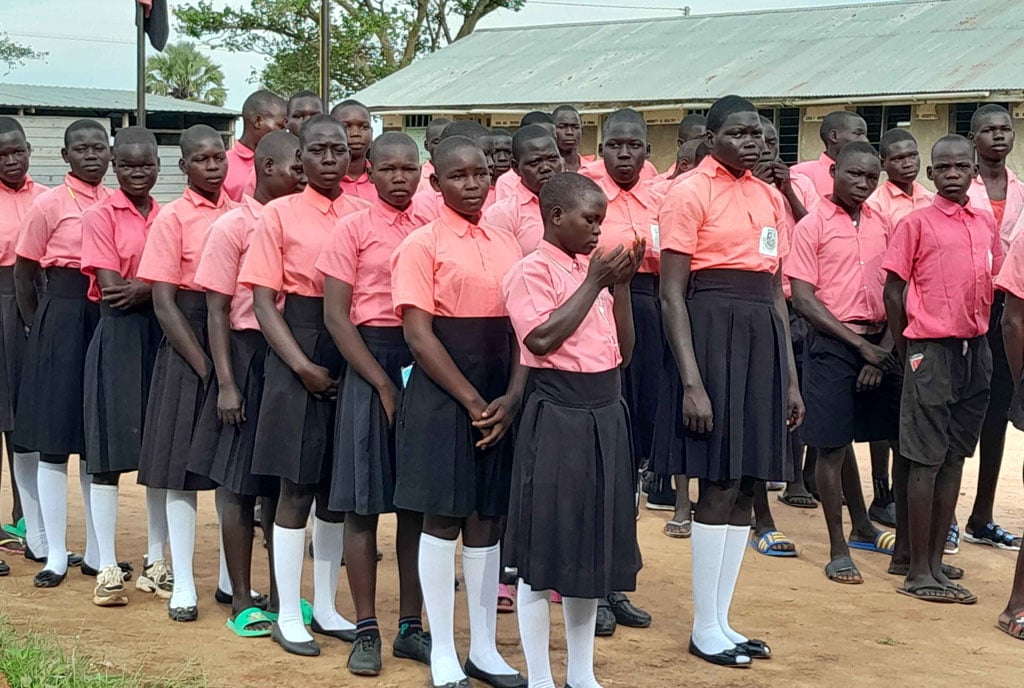Prime
Why are we making plans for tomorrow yet the house is crumbling

Author, Benjamin Rukwengye. PHOTO/FILE.
What you need to know:
Consider this Uneb-children story. It is illogical and laughable that something like that should be happening – but it also isn’t because this is Uganda
Andrew Mugyisha. In case you are vague on his story, here are some of the details. He and 26 of his classmates are in big trouble. They were Primary 7 candidates at St Christine Primary School in Kakumiro District. But the school had no Uneb centre number, so they had been registered as students of Mpasana Primary school – which is where they would sit their national exams.
The two schools are – apparently – 15 kilometres apart so the only way for them to manage the commute would be via chauffeur. Their school director, Pascal Asiimwe – naming him because it is important to expose and have a record of people like him – committed that he would get a van to ferry the pupils to Mpasana Primary School.
Except, he didn’t. On the morning of their first exam – Mathematics – he was a no-show. The pupils waited anxiously. The parents called frantically. He couldn’t be tracked. Because desperate times call for desperate measures, they decided to make the long walk. By the time they arrived, 15 kilometres later, the exam had been going on for more than one and a half hours.
Uneb regulations allow for only 15 minutes of lateness, if at all. The regulations also say that if you miss an exam, there is no remedial exam. You basically just have to repeat the exam the following year. So, you can see the conundrum in which the children find themselves. It is also not the first time that learners are missing a national exam for reasons that are not of their own doing. This week, I was at Makerere University, attending the Kampala Geopolitics Conference. The annual conference is quite possibly the single-most assembly of experts, national and foreign, dissecting the questions of our time.
Even better, this year’s edition took place on the backdrop of the university’s elaborate commemoration of its 100 years of existence, characterised by insightful conversations and public lectures about all manner of topics. This is the sort of thing that Makerere University – and other universities – should be doing a lot more often.
It is a travesty that they have largely abdicated this responsibility, surrendering it to civil society organisations and the private sector, many of which don’t always have the kind of depth or width beyond the promotion of their parochial agenda.
The panel I attended was “Reimagining Africa’s higher education on the global scale; championing innovations for transformation.” It is not hard to predict how conversations like this will end, but they are important because you must keep the main thing the main thing. Mostly, they are an indicator of how far off the mark we are and why we are likely to not arrive at our destination – wherever that may be – if we continue on this journey.
Consider this Uneb-children story. It is illogical and laughable that something like that should be happening – but it also isn’t because this is Uganda. You can think of so many ways in which those children could have got to their exam venue in time, so it doesn’t make sense why they didn’t. But also, it somewhat does, if you consider the problem solving abilities of your average Ugandan.
But we also know that it is not the first – and certainly not the last – time that learners are missing a national exam, for whatever reason. In fact, statistics show that a significant number of registered students don’t show up for the exams. As is to be expected of us, there aren’t many verifiable reasons why.
Perhaps what we should be asking of Uneb is why there is no Plan B for students who are unable to take such a high-stakes exam the first time of asking. How are you in charge of a process that determines the fate of about 1 million people but working with the assumption that all of them will show up at their respective stations? No wonder the transition rate from primary to secondary school is abysmal.
How and why do we licence or let schools operate when they don’t have centre numbers? This takes us back to the theme of reimagining education. Should we really be engaging in conversations about curriculum reforms, the 4th industrial revolution, and skilling for the future of work if we can’t even get routine administrative processes such as how to make sure everyone takes their exam right?
Mr Rukwengye is the founder, Boundless Minds. @Rukwengye




